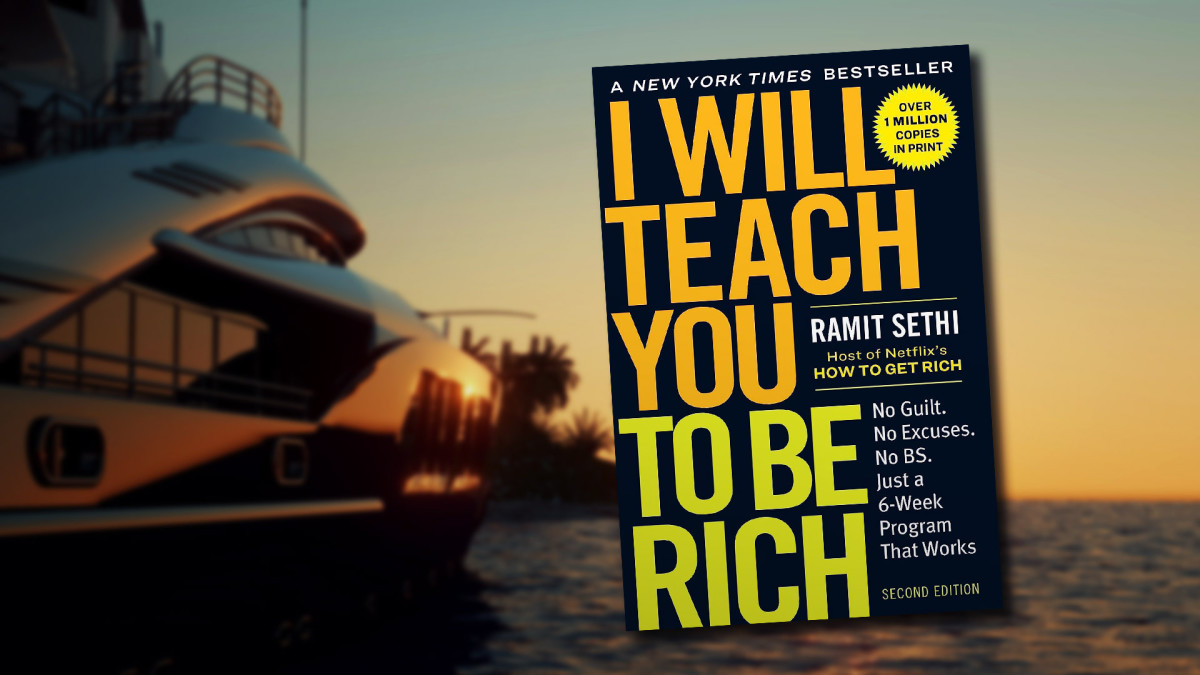
One of the first books I picked up as a young reporter tasked with writing about personal finance was a 270-page paperback called “I Will Teach You to Be Rich” by Ramit Sethi.
In the seven years since, I’ve become a certified financial planner and read almost two dozen personal finance books, and Sethi’s simple, no-nonsense guide to building wealth is my favorite.
I’ve gifted it to my friends and siblings and passionately recommended it to my social media followers. My own copy is well-worn and within arm’s reach of my desk. The concepts and advice are fundamental and timeless.
“I Will Teach You to Be Rich” was published in the wake of the financial crisis and became a New York Times bestseller (the title came from Sethi’s earlier blog of the same name). An updated edition dropped in 2019 and included guidance around relationships and money and the new math on buying a house, plus anecdotes from people who implemented the strategies outlined in the first edition — and even more compellingly, those who didn’t and wished they had.
I practically beg people who ask me for money advice to read the book and follow Sethi’s six-week program, believing they will not only see quantifiable results, but feel better about their financial lives. That’s what happened to me, anyway.
The book walks readers through the need-to-know aspects of credit and debt, banking, investing, and spending, and then explains exactly how to set up a money system so that “your accounts play together nicely,” as Sethi puts it.

TheStreet / Shutterstock / Ramit Sethi
There are charts, graphics, examples with real numbers, and checklists — and no shortage of real talk. Sethi debunks common money myths, shames predatory banks, and criticizes victim culture. Yet he compassionately lays out real solutions to overcoming these and other hurdles.
And for a finance book, it’s anything but boring. It’s best consumed cover to cover, but if you’re just looking for guidance on opening a 401(k) or budgeting (Sethi calls it "conscious spending”) then you can easily find it — but do yourself a favor and at least read the introduction. It's titled "Would you rather be sexy or rich?" and his arguments are different than you may think.
Sethi declares that “investing is the single greatest way to get rich” … but not to the exclusion of everything else. If you don’t tackle your guilt around spending (we've all been there), for example, you won’t ever be financially free.
The basis of Sethi’s "rich life" philosophy, and one of his most repeated lines, is “spend extravagantly on the things you love and cut mercilessly on the things you don’t.” When I read that and realized it wasn’t categorically bad or good to spend money on travel, food, or whatever brings me joy, it freed me.
What really sets “I Will Teach You to Be Rich” apart from other personal finance books is the feeling that you’re in a lab rather than a lecture, one where the instructor believes in abundance over scarcity.
There are enough resources to go around, Sethi seems to say, and these are the exact tools you need to achieve your definition of a rich life. And that’s to say nothing of the funny and relatable stories he tells throughout about himself, his friends and family, and society at large. You'll chuckle and nod your head more than once.
“I Will Teach You to Be Rich” is a book for anyone who wants to live their best financial life. Buying it may even be the best $10 you spend this year (or ever).







